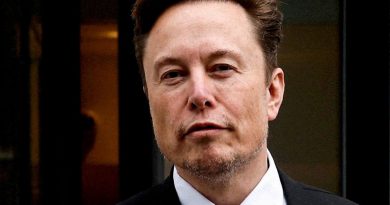West asks whether Iran is serious or stalling as nuclear talks resume
Dubai (Reuters) – Iran and world powers resumed talks on Monday to try to salvage their 2015 nuclear deal after a five-month hiatus, but with Tehran sticking to its tough stance and Western powers increasingly frustrated, hopes of a breakthrough appeared slim.
Diplomats say time is running out to resurrect the pact, which then-U.S. President Donald Trump abandoned in 2018, angering Iran and dismaying the other powers involved – Britain, China, France, Germany and Russia.
Six rounds of indirect talks were held between April and June. The new round formally began with a meeting of the remaining parties to the deal, without the United States, shortly after 1400 GMT, officials present said on Twitter.
The meeting in Vienna ended an extended break triggered by the election of hardline cleric Ebrahim Raisi in June as Iran’s president. The talks are effectively indirect negotiations between Tehran and Washington since Iran refuses to meet face to face with U.S. envoys. Other officials shuttle between them.
Tehran’s negotiating team has set out demands that U.S. and European diplomats consider unrealistic, Western diplomats say.
“Our demands are clear. Other parties and especially Americans should decide whether they want this deal to be revived or not. They abandoned the pact, so they should return to it and lift all sanctions,” an Iranian official close to the talks told Reuters.
Iran’s demands include the dropping of all U.S. and European Union sanctions imposed since 2017, including those unrelated to Iran’s nuclear programme, in a verifiable process.
Tensions
In parallel, Tehran’s conflicts with the U.N. atomic watchdog, which monitors its nuclear programme, have festered.
As Iran has advanced its uranium enrichment, the International Atomic Energy Agency says its inspectors have been treated roughly and refused access to reinstall monitoring cameras at a site it deems essential to reviving the deal.
“If Iran thinks it can use this time to build more leverage and then come back and say they want something better, it simply won’t work. We and our partners won’t go for it,” U.S. envoy Robert Malley told BBC Sounds on Saturday.
Since Trump took the United States out of the deal, Iran has breached many of its restrictions meant to lengthen the time it would need to generate enough fissile material for a nuclear bomb. Iran says it wants to enrich uranium only for civil uses.
Malley warned that Washington would be ready to ramp up pressure on Tehran if the talks collapse.
The Islamic Republic insists its focus is purely the lifting of sanctions rather than nuclear issues.



